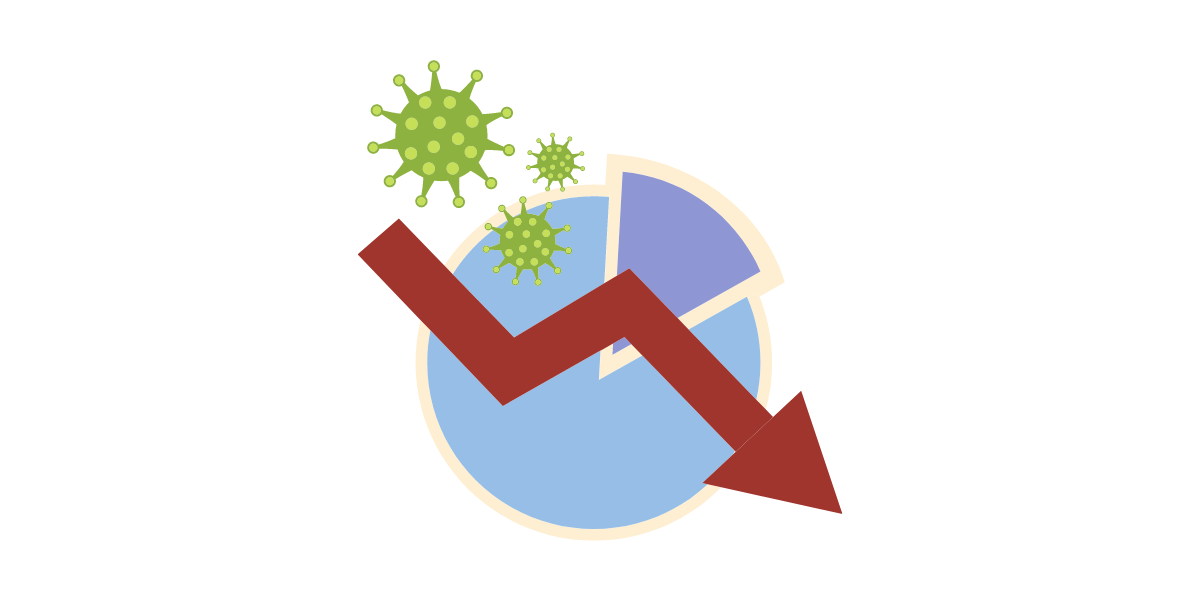
The Covid-19 pandemic is one of the most devastating pandemics in history. It has had a devastating impact on the world and no one has been spared by its effects. The death rate has increased dramatically around the globe. People are not only losing loved ones, but also their jobs and income. More than 100 countries have experienced economic disruptions. Some countries even requested monetary assistance from the IMF.
India’s Economy:
India is a developing country and the Prime Minister NarendraModi announced a 21-day lockdown to protect citizens. The country has experienced high unemployment and economic depression. As the new corona virus strikes India’s economic activities, India has seen a significant decrease in income growth and government revenues. A recent study found that 40 million Indians have lost their jobs, mainly in unorganized areas.
Schools and colleges have been closed; IPL sports events have been postponed. Businesses around the globe, including entertainment, hospitality and aviation, have seen major economic impacts on their economies. People were afraid of the corona virus and didn’t go out to shops to purchase daily necessities. All of these factors have had an impact on the economy.
Global growth has dropped from 2.9% to 2.4% and may drop as low as 1.5%, according to the Organization for Economic Co-operation and Development (OECD).
The main component of GDP will be affected by the lockdown in India. The disruption to global trade and supply chains will have a major impact on countries that are strong importers as well as those who are exporters.
India’s total electronic import is approximately equal to 45% of China. India imports about two-fifths and one-third respectively of Chinese machinery and organic chemicals.
In India, approximately 90% of mobiles are made from China and 65% to 70% import active pharmaceutical ingredients.
According to the World Trade Organization (WT0), there will be a global trade decline of up to 32% by 2020.
Sectorial Impacts
Sector of Labour:
This sector was the most affected as the majority of labourers lost their jobs. They were employed in construction companies and did daily wage work.
Indian factories are short of labour due to travel restrictions and Quarantine.
People have moved from the cities to the countryside in this country.
Restaurants
The NRAI, which represents many restaurants, has advised its restaurants that they should close down. According to government orders, all restaurants, bars, pubs, and cafes were ordered to close down. Online food delivery platforms like zomato or swiggy saw a significant drop of around 60% during the pandemic.
Food and Agriculture
This sector is a major contributor to GDP and the employment sector. This year will see a significant impact on the supply of agricultural products and food products like dairy products, edible oil and cereals.
Agro-chemical companies that deal with the export of finished goods and import of raw materials will also be affected.
Due to the absence of delivery vehicles, online food shopping also suffers.
The consumer demand for commodities like grapes, mangoes, and seafood has declined significantly.
Online business
The Indian economy contributes 10% to this sector. Its major segments include healthcare, personal and household care products, as well as the food and beverage sector.
People are afraid of the corona virus and have stopped stocking essential commodities like rice, flour, and lentils. This has led to an increase in sales for FMCG companies that saw trade fall due to disruptions in supply chain.
MSME:
This sector contributes between 305 and 35% to India’s GDP. According to AIMO, Maharashtra, Tamil Nadu and Madhya Pradesh have most registered MSME’s. If the closure continues for four more weeks, it will impact the employment of 114 millions people and affect the GDP.
Garments, consumer goods, and logistics have seen a decline in business. The MSMEs involved is still functional, but it is likely to isolate because of the plunging liquidity constraints and purchasing capacity.
The majority of MSMEs rely on loans from the government for funding. There has been relief since the RBI announced that there would be a three-month repayment period and a reduction in the repo rates.
These are just a few of the negative effects that the coronavirus has on India’s economy. However, this pandemic taught us many lessons. Multinational companies have shifted to online platforms for many of their operations. Many people now work from home. This pandemic gave rise to the digital world. People are now using apps such as PayTM and Google pay to make payments instead of using cash. Online classes and schools are now available through Google Classrooms, Zoom Meetings, and Google Meets. Students can access their assignments online. They can also take their exams online via various platforms. This crisis highlighted the importance to invest in technology, such as cloud data and self-service capabilities.
